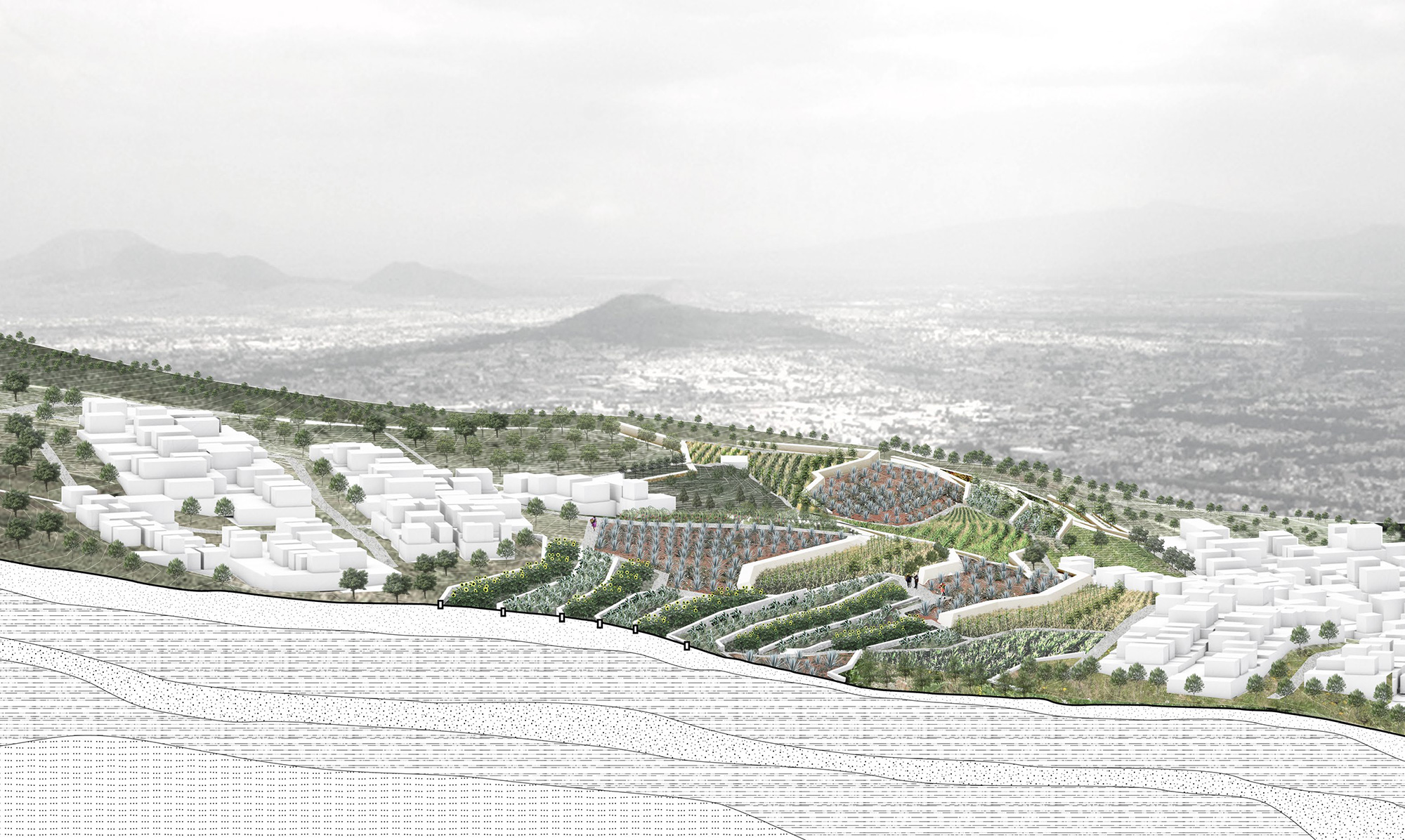
04.03.20 - Alumnus Qiwei Song wins a National Urban Design Award for his MLA thesis project
When Qiwei Song (MLA 2018) visited Mexico City three years ago, he immediately took an interest in the city's fringes. There, on steep hillsides, people who are priced out of the city core have built informal settlements. These neighbourhoods often have sparse access to critical services, like running water — and, because they're built on sloped land, they're prone to flash floods and other natural disasters.
Qiwei decided to focus his Master of Landscape Architecture thesis on potential solutions to the problems on those crowded urban hillsides. And now he's glad he did. His project, "Topographic Urban Expansion," was named the winner of this year's Award of Excellence in the "student projects" category of the National Urban Design Awards. Qiwei's thesis advisor was assistant professor Fadi Masoud.
The National Urban Design Awards, established in 2006, are administered every other year by the Royal Architectural Institute of Canada. Only 13 awards were distributed this year, and Qiwei was, actually, the recipient of not one, but two of them. Another project of his — a 2017 study of drainage in the Evergaldes, which he did in collaboration with two other Daniels MLA students, Meikang Li and Chaoyi Cui — was the runner-up in the same category that Qiwei's Mexico City thesis project won.
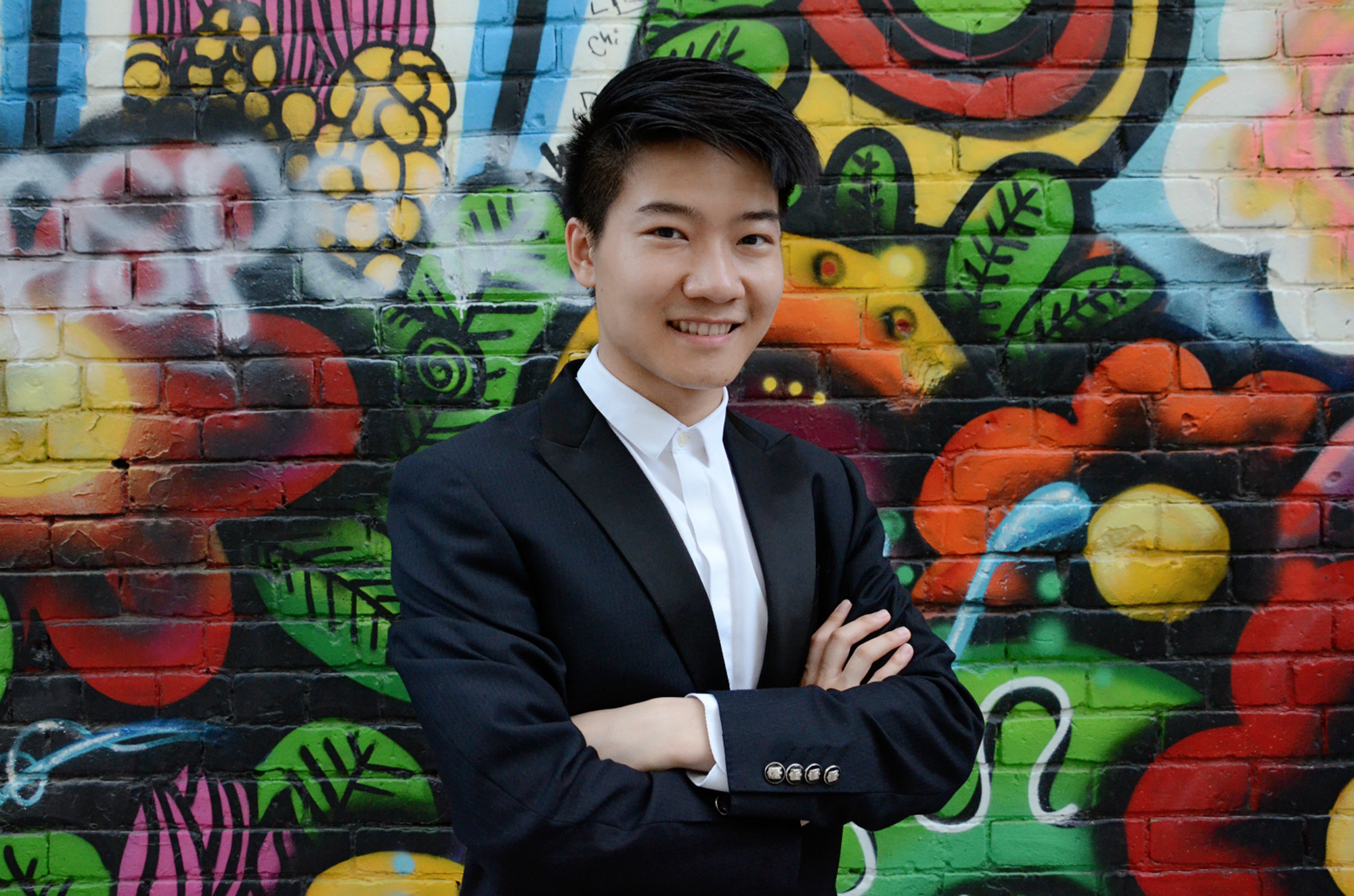
Qiwei Song.
Qiwei's thesis project calls for a series of strategic landscape interventions in order to prepare an untouched mountainside area near Mexico City for eventual urban intensification.
His main proposal is a series of winding barriers made up of plants and landforms. The barriers would crisscross the entire sloping area, stabilizing the soil and also beautifying the landscape.
Between those barriers, Qiwei proposes a series of "nodes" to be built along the hillside, including a "social node," with a plaza where local people could gather and sell goods. Underneath the plaza would be a rainwater collection system, which would help address some of the community's issues with water access.
Here's a rendering Qiwei made of what that would look like:
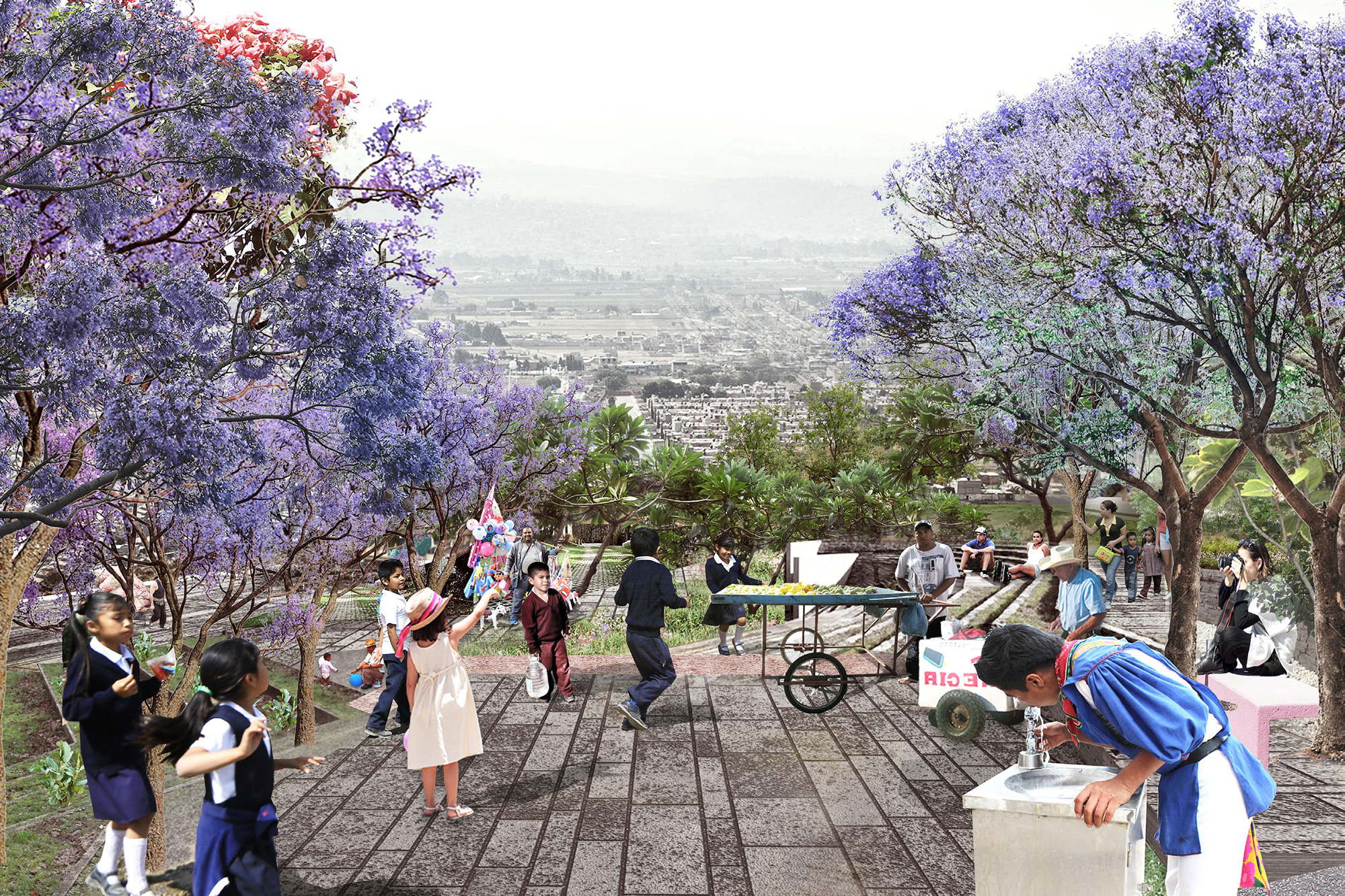
Elsewhere, there would be a "production node," where locals could farm produce on terraced land:
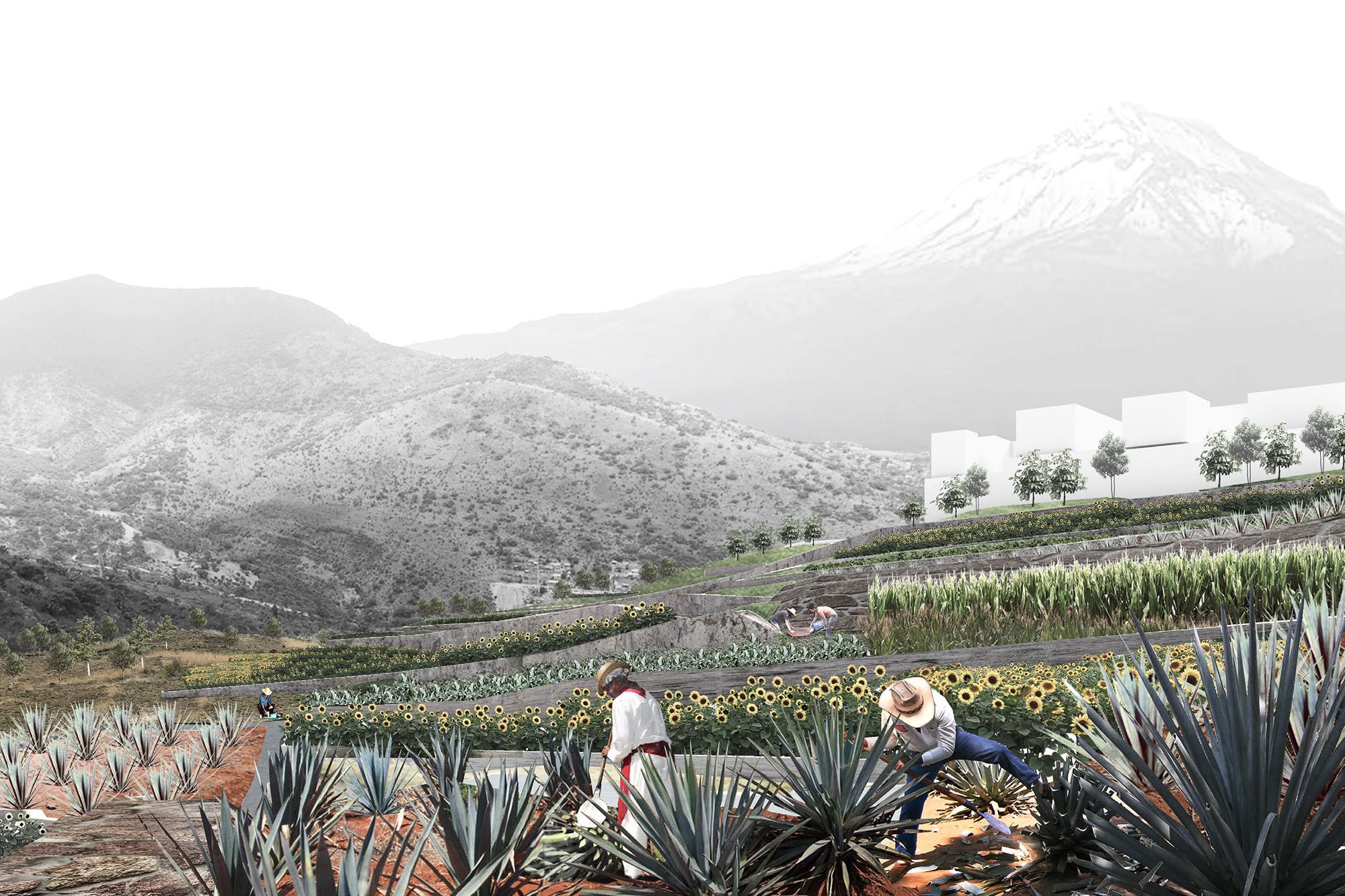
And a "nature node" would be an area for native plants to flourish, where locals and visitors could rest and appreciate the view from the hillside:
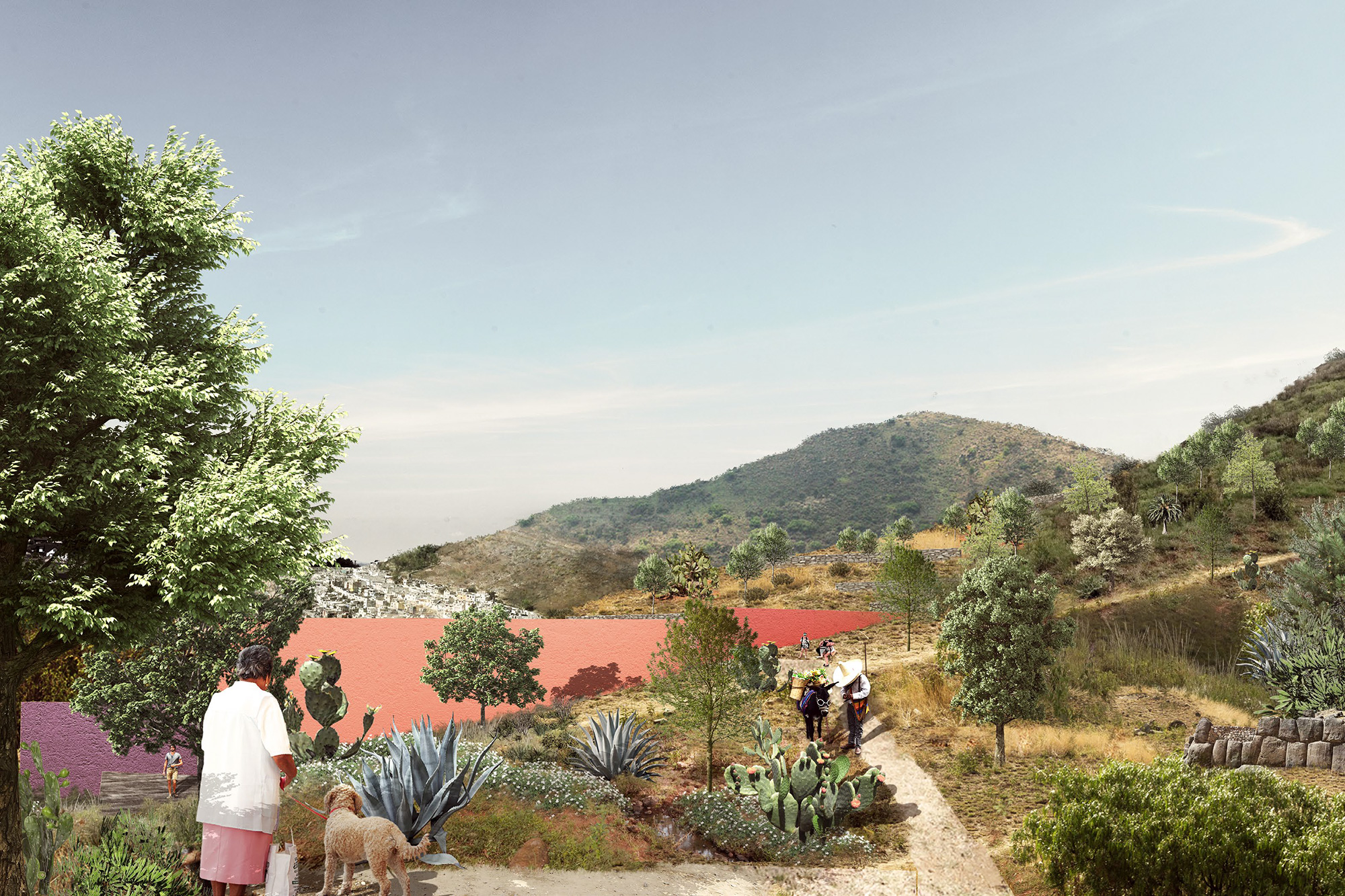
In the two years since he completed this project, Qiwei has already made significant strides in his career. He's currently working as a landscape designer at Moriyama and Teshima Planners, where he's involved in an effort to develop a 25-year master plan for the Royal Botanical Gardens in Burlington, Ontario.
Top image: A rendering of an urban hillside with erosion barriers, from Qiwei Song's thesis project.

